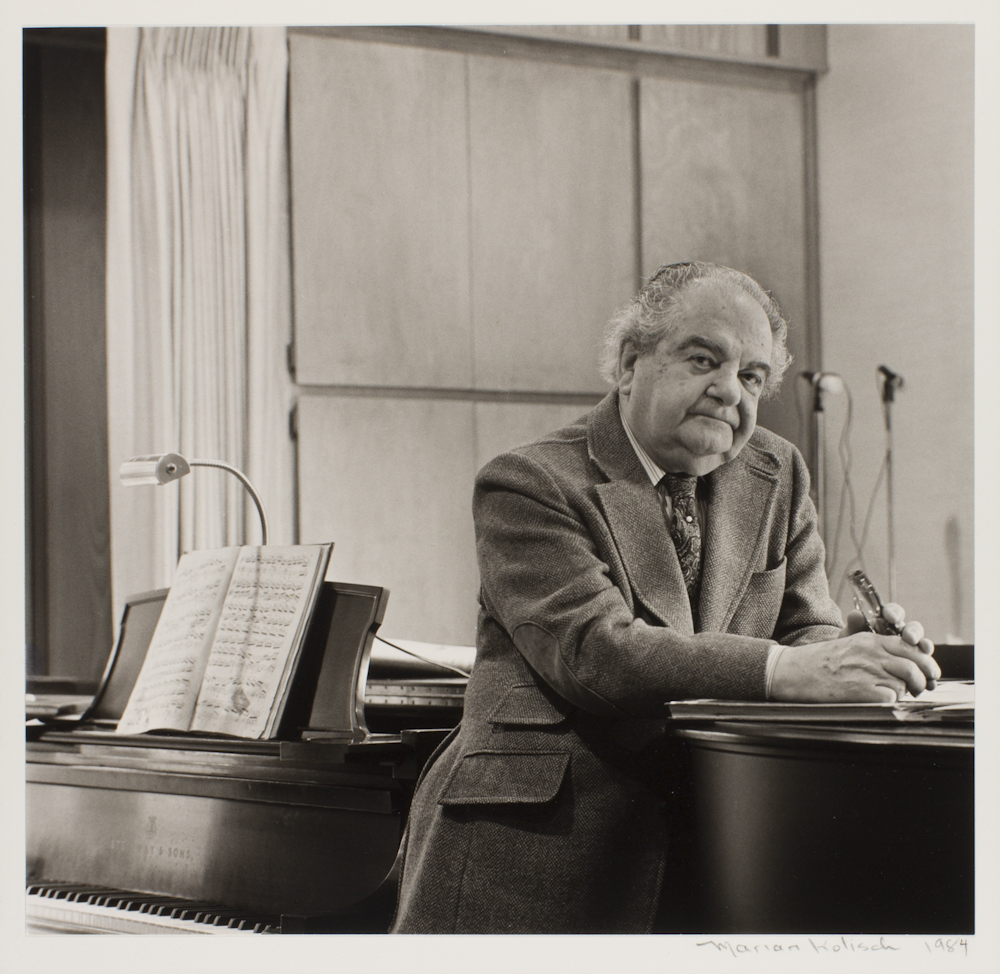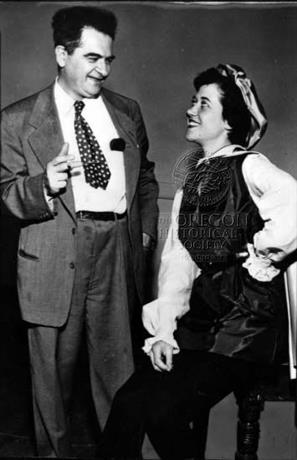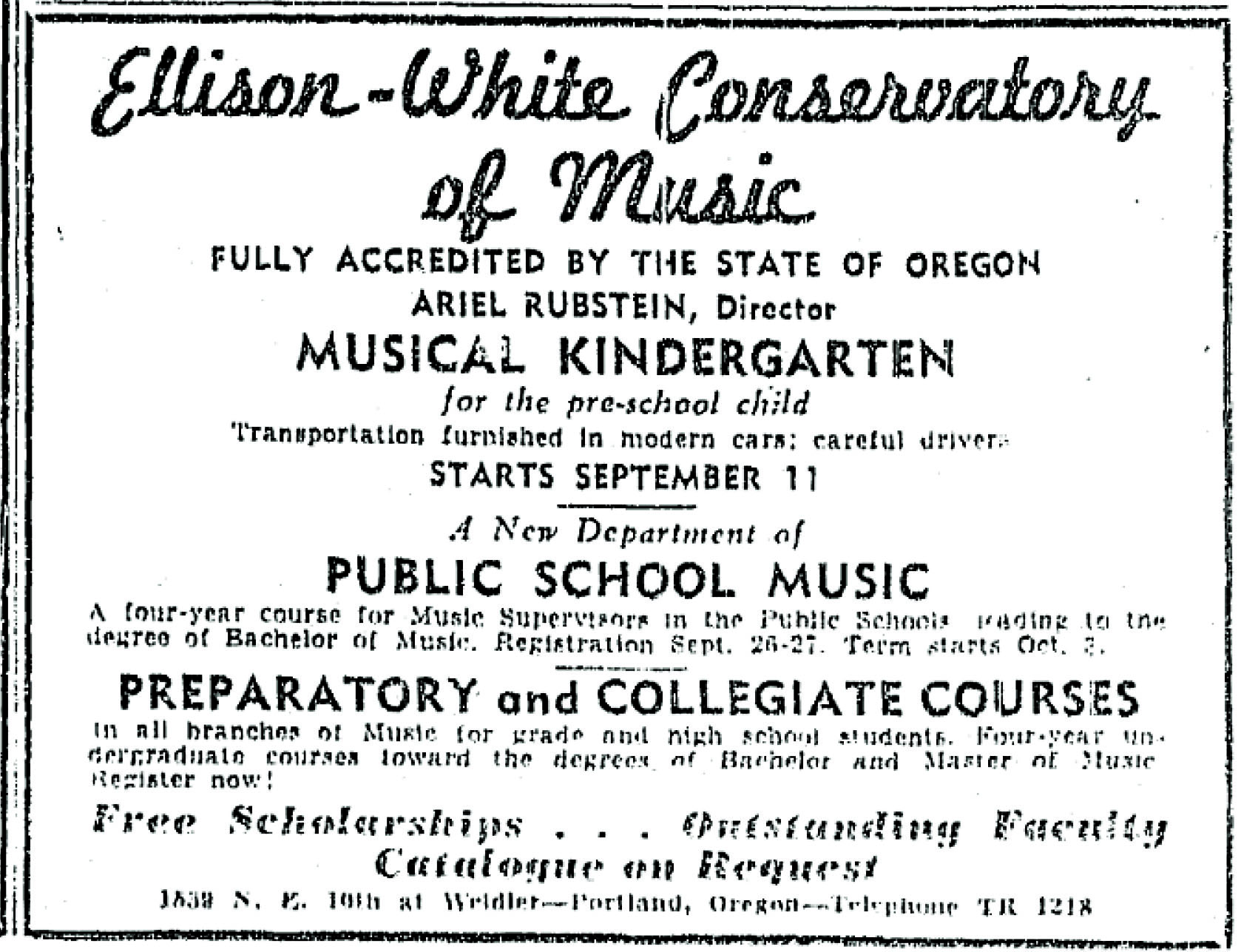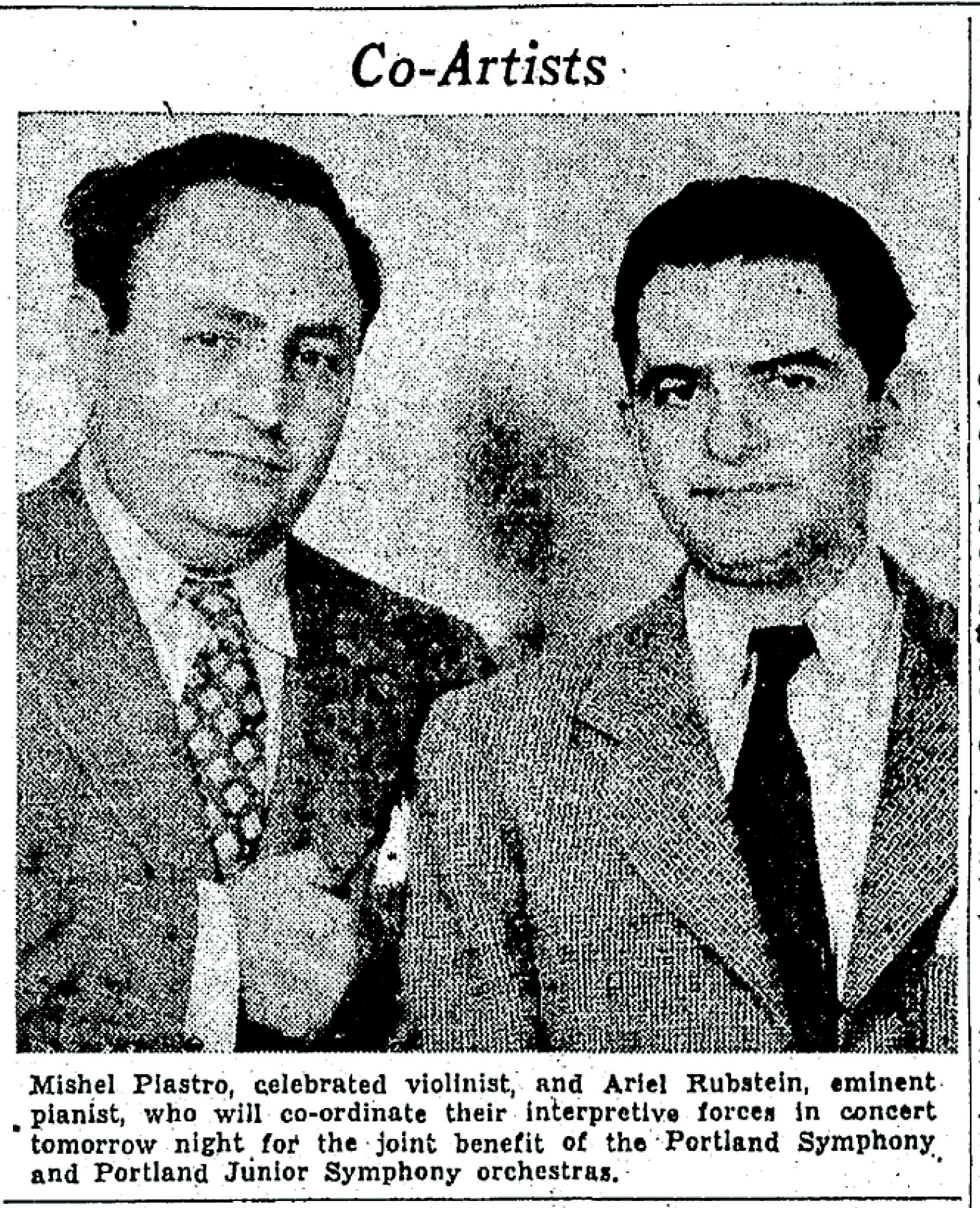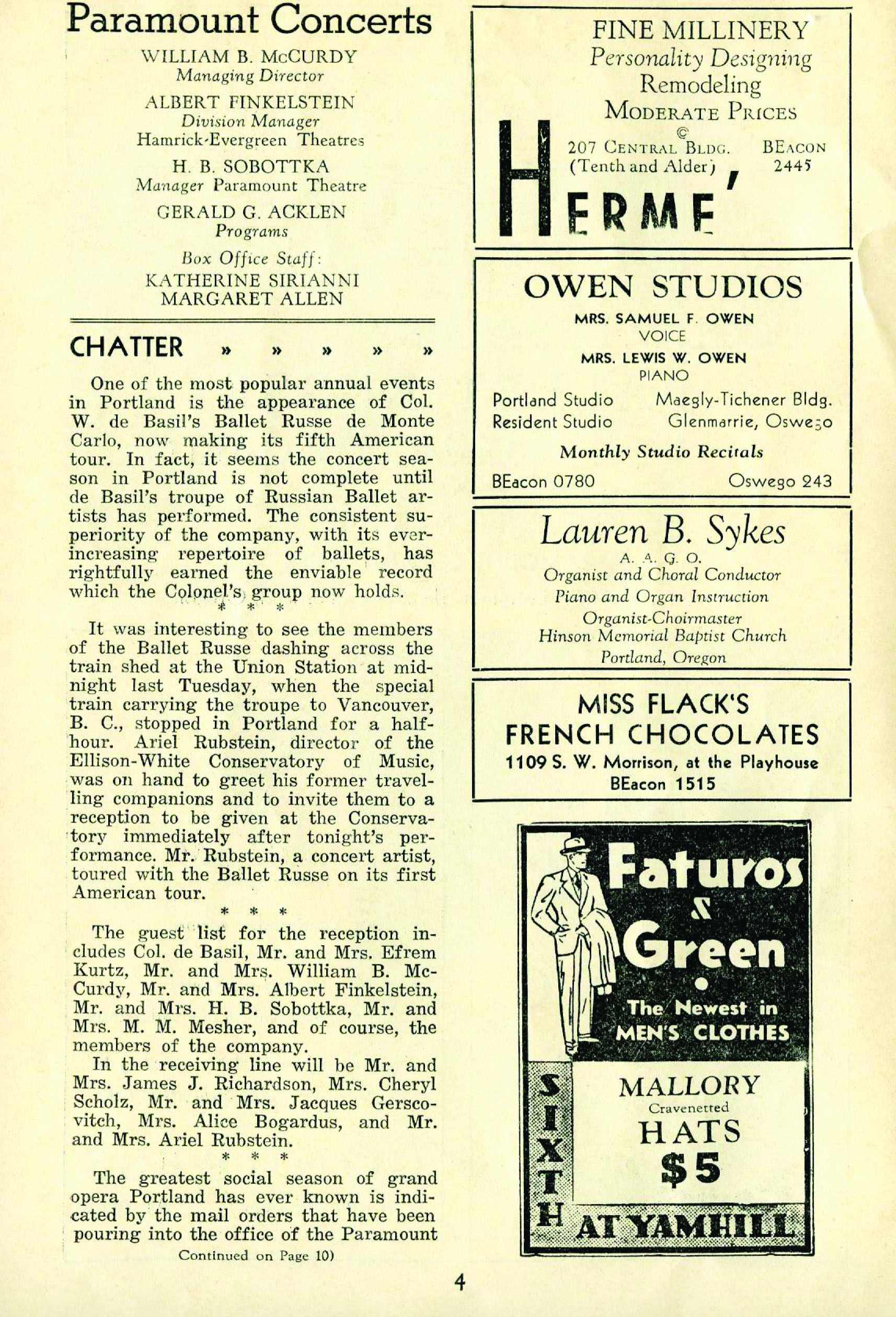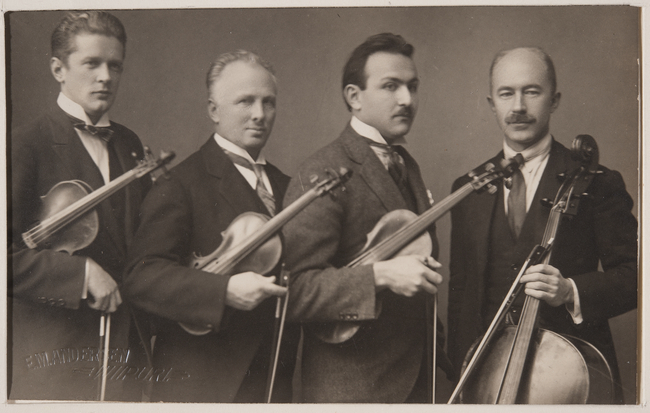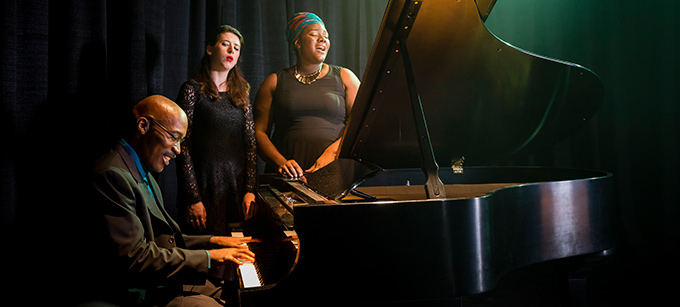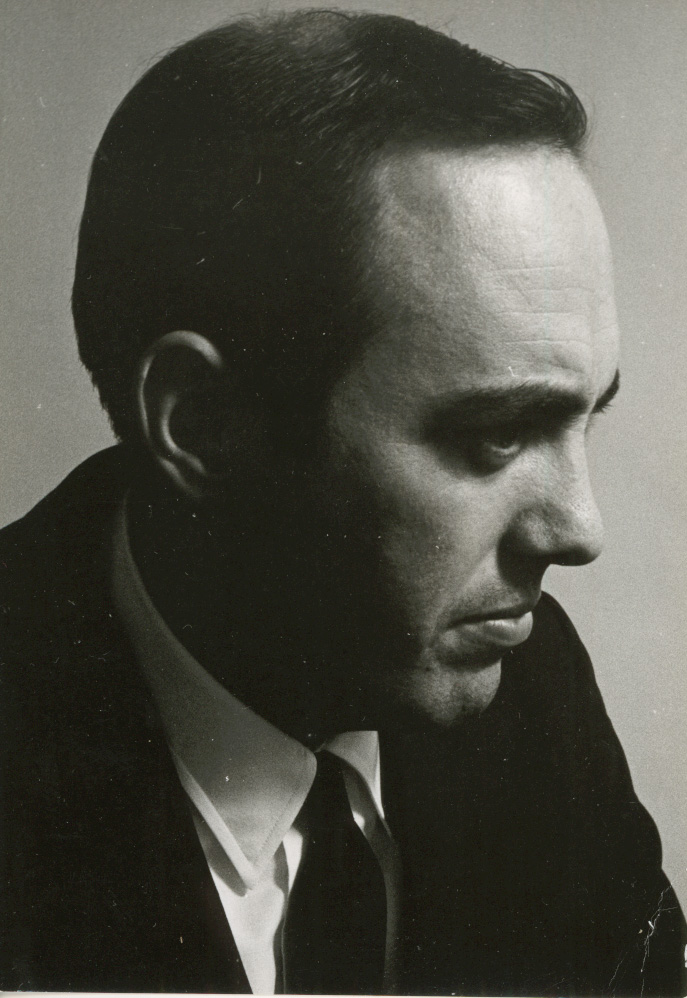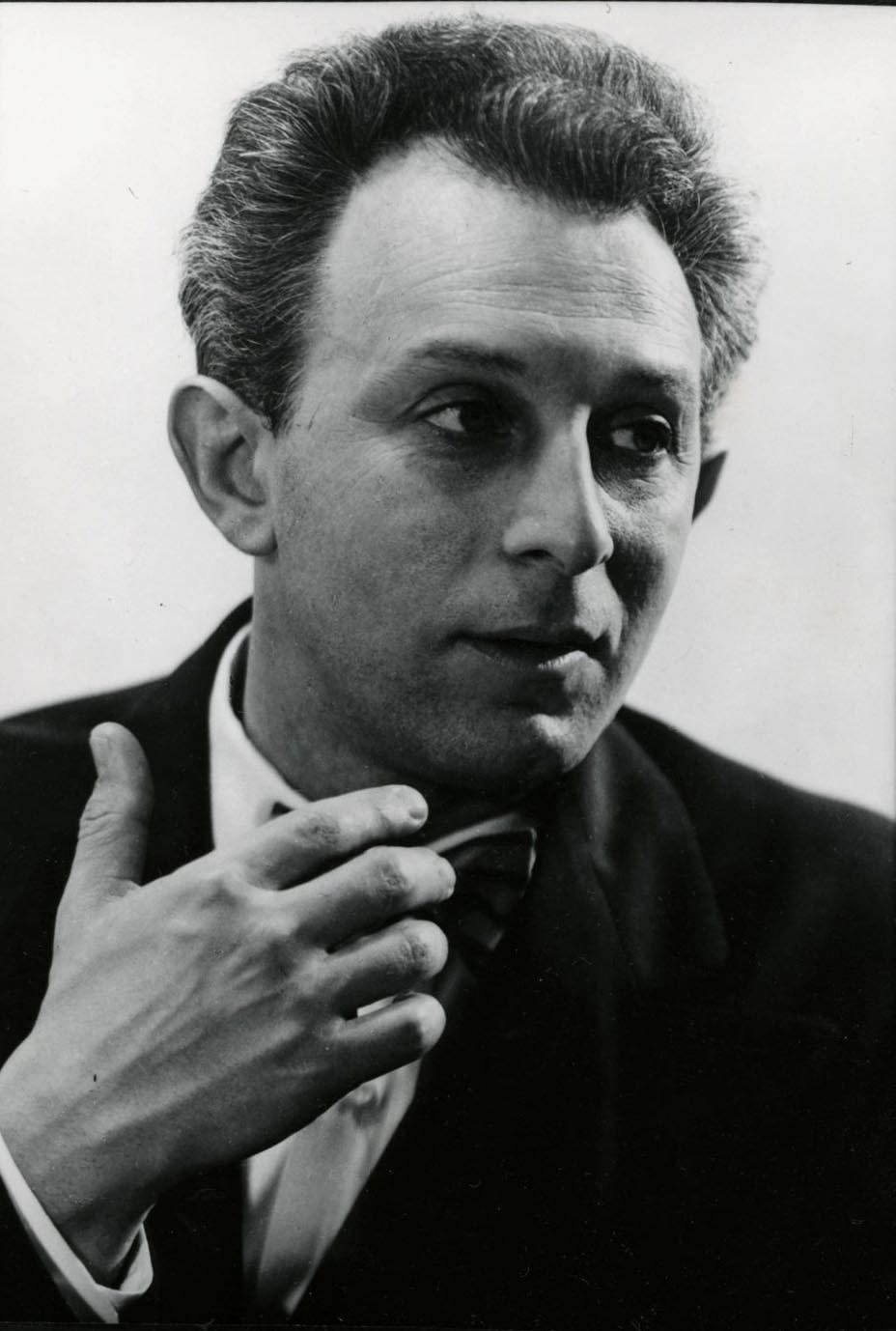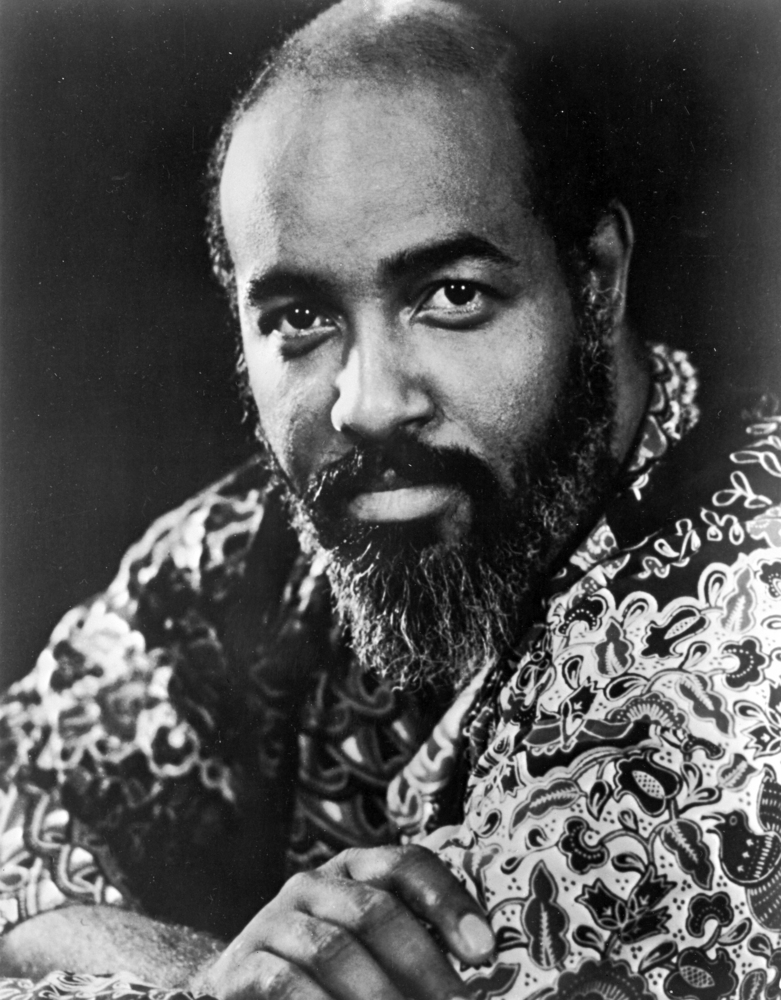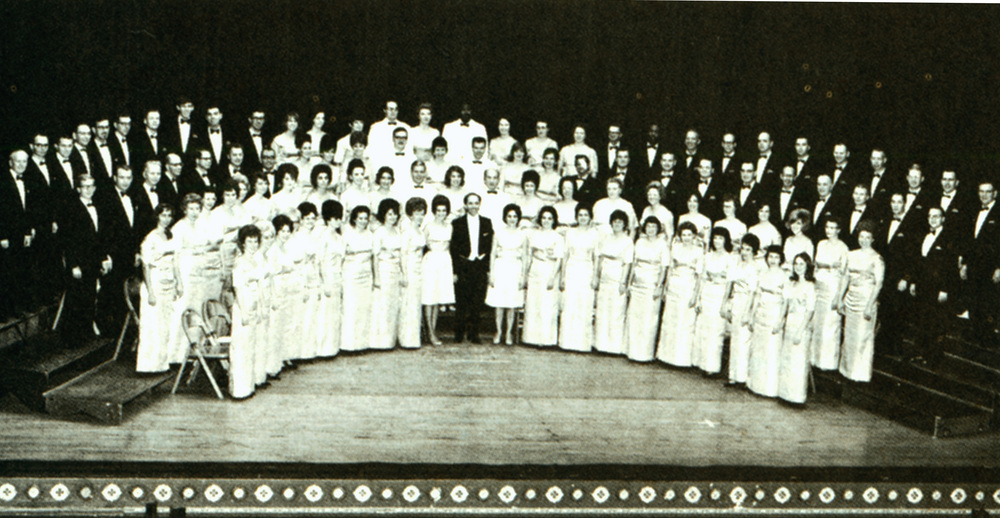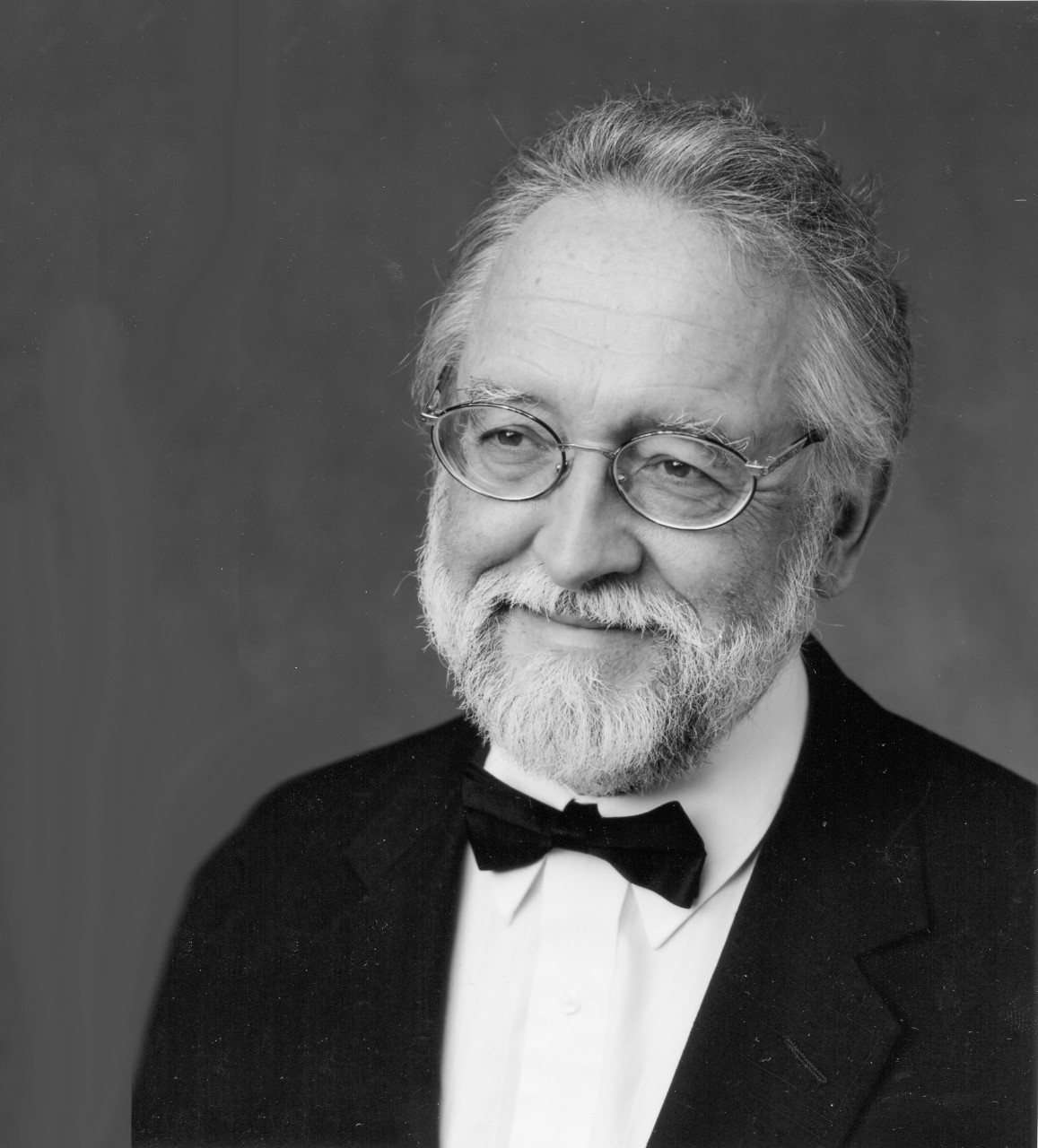Ariel Rubstein—classical pianist, composer, music educator, conductor, and impresario—was prominent in twentieth-century Oregon’s musical life. He led the Portland School of Music, performed in concerts, and conducted and produced operas. The founder of Celebrity Attractions, he brought notable classical musicians and ballet companies to perform in Oregon.
Aron Alter-Solomonovich Rubshteyn was born in Kyiv, Ukraine, on December 27, 1899. He was admitted to the Imperial Conservatory of Kyiv in 1913, graduating in 1917 and earning the title of Free Artist (equivalent to a master’s degree) in 1919. While still a student, he accompanied, coached, and performed with the Kyiv Opera.
In the revolutionary turmoil of 1919, Rubshteyn fled to the Crimea, where he changed his name to Ariel Rubstein. The next year he immigrated to Istanbul, where he composed a Turkish march for Mustafa Kemal, the future president of the Republic of Turkey, and organized an opera company of Russian émigrés that toured Bulgaria and Serbia. He also performed in Palestine and Egypt.
In 1921, Rubstein studied piano and composition in Vienna and Berlin with Ferrucio Busoni, who recommended him to Elizabeth Sprague Coolidge, an American sponsor of musicians, composers, and chamber music. She engaged Rubstein to perform with cellist Felix Salmond at the Berkshire Chamber Music Festival in Pittsfield, Massachusetts, in summer 1922. He immigrated to the United States that spring and performed in Pittsfield while living in New York City, where he directed the Community Center Conservatory of Music. He gave piano concerts, touring in the eastern United States and South America, and directed chamber music broadcasts for the CBS radio network. An accompanist in Petrushka for Ballet Russe de Monte Carlo, he also recorded modern Russian piano works for RCA Victor and composed the score for the pantomime ballet Mademoiselle Bluebeard, which was staged in 1928, the year he gained U.S. citizenship.
In 1936, on his way to direct the music department of Seattle’s Cornish School, Rubstein stopped in Portland, where an astute hotel desk clerk, aware of Rubstein’s musical chops, called local journalists to let them know he was in town. Portland Junior Symphony conductor Jacques Gershkovitch invited him to a concert and a musicians’ party. Rubstein never made it to Seattle and instead decided to offer piano master classes in Portland. That year, Rubstein’s wife since 1921, Natalie Salamatin, died of a cardiac ailment. In 1937, he married actress Eleanor Reed; they would have three children. Their youngest, Ariel Deborah Rubstein, became an operatic soprano.
When the Ellison-White Conservatory of Music, founded in 1917, offered Rubstein the position of director in 1937, he accepted with the stipulation that it become a nonprofit institute with a board of directors. He expanded its courses, and in 1938 the Conservatory was accredited by the state board of education for bachelor’s, master’s, and doctoral degrees in music. It was renamed the Portland School of Music in 1942 and continued under Rubstein’s direction until it closed in 1960. Eleanor Rubstein helped manage the school.
In summer 1949, Rubstein presented free outdoor performances of Menotti’s The Telephone and Debussy’s L’Enfant Prodigue in the Washington Park Amphitheater, with support from Portland’s Bureau of Parks and Recreation and the American Federation of Musicians. Over the years, Rubstein performed in small ensembles and as solo pianist, accompanying violinist Mishel Piastro, concertmaster of the New York Philharmonic, in four performances (1936, 1940, 1948, 1967). He directed numerous operas in Portland and in 1967–1968 performed all of Mozart’s piano sonatas.
Rubstein’s success led to the revival and incorporation of Portland Civic Opera, which had been active from 1918 to 1926. Under his leadership, the company gave free outdoor performances during the summer and offered a winter opera series in Civic Auditorium. He resigned in 1955, citing lack of effort by the organization’s board, and subsequently won a lawsuit for payment of his expenses in preparing an opera that had been canceled. The same year, he started West Coast Opera Theatre. In 1964, the two companies merged to form the Portland Opera Association.
In 1959, Rubstein founded Celebrity Attractions, a concert production agency that brought solo and ensemble artists to Portland, including Arthur Rubinstein, Van Cliburn, Vladimir Horowitz, Andres Segovia, Beverly Sills, Isaac Stern, Margot Fonteyn, Christopher Parkening, William Wakefield, Jan Peerce, and the Joffrey Ballet. He ran the business with Eleanor, and when Rubstein retired in 1980 his daughter Victoria became manager. Celebrity Attractions closed in 1986.
At Rubstein’s death on June 15, 1997, the Oregonian wrote: “Rubstein's legacy is more than multiple memories of enchanted evenings, of soaring arias and even louder negotiating sessions. Through his efforts, he repeatedly demonstrated Portland's potential as a cultural market and elevated the expectations of its leaders and citizens.”
-
![]()
Ariel Rubstein, by Marian Wood Kolisch, 1984.
Courtesy Portland Art Museum -
![]()
Ariel Rubstein and Barbara Crook in a performace of Faust, 1952.
Oregon Historical Society Research Library, 013558
-
![]()
Ad in the Sunday Oregonian, September 10, 1939.
Courtesy Portland Oregonian
-
![]()
Mishel Piastro and Ariel Rubstein performance announcement in the Sunday Oregonian, September 27, 1936.
Courtesy Portland Oregonian
-
![]()
Paramount Concert Series program, 1938.
Courtesy Multnomah County Library
Related Entries
-
![Boris Sirpo (1893–1967)]()
Boris Sirpo (1893–1967)
Violinist, teacher, composer, and conductor Boris Sirpo was best known …
-
![Darrell Grant (1962–)]()
Darrell Grant (1962–)
A pianist, vocalist, composer, and educator, Darrell Grant arrived in P…
-
![Gilbert S. Seeley (1938-)]()
Gilbert S. Seeley (1938-)
The presentation of choral music in Oregon changed when Gilbert Stewart…
-
![Jacob Avshalomov (1919-2013)]()
Jacob Avshalomov (1919-2013)
Conductor and composer Jacob Avshalomov, leader of the Portland Youth P…
-
![James DePreist (1936-2013)]()
James DePreist (1936-2013)
In 1977, while music director of L'Orchestre Symphonique de Quebec, Jam…
-
![Portland Symphonic Choir]()
Portland Symphonic Choir
Struck by Portland's lack of a civic chorus, C. Robert Zimmerman decide…
-
![Tomas Svoboda (1939-2022)]()
Tomas Svoboda (1939-2022)
Tomáš Svoboda was an internationally renowned composer, performer, prof…
Map This on the Oregon History WayFinder
The Oregon History Wayfinder is an interactive map that identifies significant places, people, and events in Oregon history.
Further Reading
“Noted pianist, composer opens studio here,” Oregon Journal, April 19, 1936, p. 44.
“Conservatory now headed by Ariel Rubstein,” Oregon Journal, August 29, 1937.
“Rubstein asks to quit Opera,” Portland Oregonian, February 16, 1955, p. 1.
“Ariel Rubstein: from Kiev to Portland,” Portland Oregonian, March 3, 1968, p. 142-3.
“Portland impresario practices ‘dying art,’” Portland Oregonian, March 31, 1968, p. 31.
“‘One-night stand’ lasts 35 years.” Oregon Journal, January 1, 1975, p. 4.
“Impresario Ariel Rubstein dies at 97," Portland Oregonian, June 18, 1997, p. A01.
“Ariel Rubstein, 1899-1997,” Portland Oregonian, June 23, 1997.



